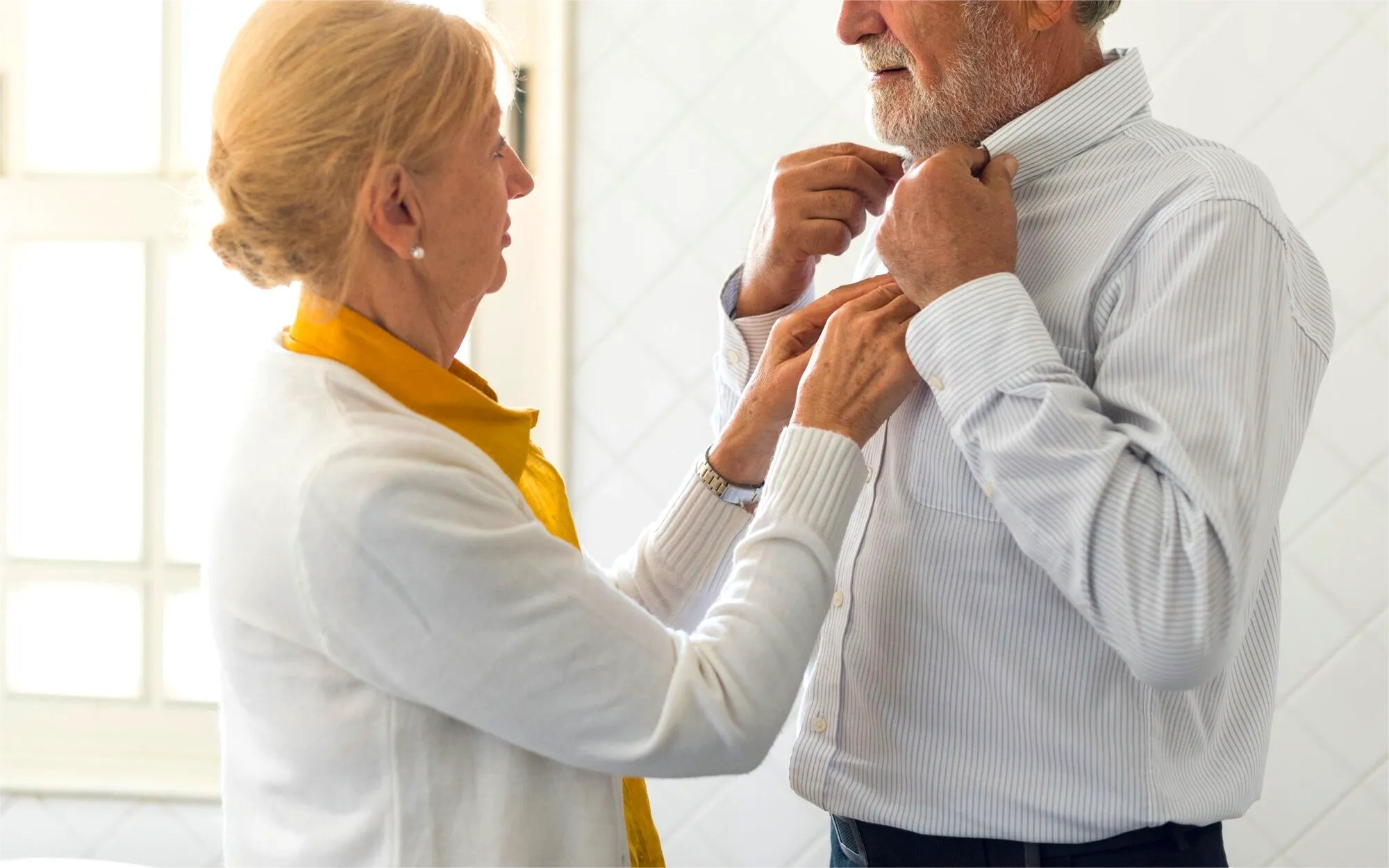When Helping is Unhelpful for People with Dementia

As caregivers, it's natural to want to assist and support our partners living with dementia, but sometimes our well-intentioned actions can unintentionally hinder their independence and contribute to a phenomenon known as learned helplessness. In this article, we will discuss the concept of learned helpless and excess disability, explore the harmful effects of overhelping, and provide practical recommendations for caregivers to ensure they offer the most effective support.
What is learned helplessness?
Learned helplessness refers to a state in which a person with dementia has become accustomed to relying on others for assistance, leading to a loss of motivation to try and perform tasks independently. They essentially give up trying and kind of take a back seat, if you will, when it comes to trying to do things for themselves. It is a form of conditioning.
Now, there are actually quite a few ways that a person can develop learned helplessness, but for this blog post, let's focus on overhelping. Overhelping is most common when a person reaches moderate or middle stages of dementia.
What is excess disability?
Excess disability refers to a further decline in a person's ability to perform activities due to overhelping. In this case, the decline is not a direct result of the condition itself (i.e., not due to dementia).
Why do caregivers have a tendency to overhelp?
There are many reasons why we as caregivers overhelp. It could be because it's quicker if we just do it, maybe our partner gets frustrated if they are struggling to do something so we step in, maybe we make an assumption that they may not be able to do something when they actually probably could with some extra time and support, or maybe we aren't thinking about any of that and we just want to be helpful and supportive and so, we think the best way to do that is by doing what we think would make our partner's life easier — helping.
Essentially, we want to be helpful, but sometimes we are too helpful, that we are hurtful.
What is the harm in overhelping?
When caregivers overhelp, they unintentionally hinder their partner's independence and prevent them from practicing and maintaining their skills. Engagement in everyday tasks and consistent practice are crucial for individuals with dementia. Without the opportunity to participate, they may experience a rapid decline in their functional abilities and lose interest in trying to engage in activities they once enjoyed.
For example, there are people living with dementia who are able to put on their shirts with just a little bit of cueing to orient the shirt properly or may need a little help finding the armholes, but because they are so use to their caregiver putting on their shirt for them, their initial response is always to just lift their arms up in anticipation of the person putting on their shirt for them. This is learned helplessness and if this pattern continues long enough, the person may lose all ability to actually put their shirt on.
We also see learned helplessness and excess disability a lot in nursing homes and other care facilities because the staff essentially does everything for them. It's often an "all-or-nothing" approach. If the person with dementia can't do all of a task, then in most cases, the staff will just do it for them. Many people regress very quickly once in a care facility for these reasons. As the saying goes, "If you don't use it, you lose it" and it applies strongly to individuals with dementia.
Learned helplessness and excess disability can also put the person at an increased risk for depression and anxiety, which are already common in people living with dementia.
So, what can we do instead?
The Shift from "Doing For" to "Doing With"
We want to be helpful, right? So, how can we be most helpful and actually benefit our partner. To provide meaningful support and foster independence in your partner, it's essential to shift your mindset from "doing for" to "doing with." Embrace the role of a care partner, working together as a team. Instead of taking over tasks, consider how you can enable your partner to actively participate. Here are some actionable steps you can take:
- Offer Choices: Give your partner two options, such as what to wear, what to eat, or when they want to shower. This empowers them to make decisions and maintain a sense of control.
- Verbal Cueing: Provide clear verbal cues to guide your loved one through tasks. For example, say, "Let's put the bra on first," or "Look for the tag on the shirt."
- Physical/Tactile Cueing: Use gentle physical cues, like tapping their arm, to direct their attention to a specific action or body part.
- Visual Demonstration or Cueing: Demonstrate the task visually or point at relevant objects to aid comprehension.
- Environmental Support: Create a supportive environment by removing clutter, providing clear signs or labels, enhancing lighting, and increasing contrast for better visibility.
- Task Adaptation: Modify tasks to suit your partner's abilities. For example, pre-cut craft materials, use larger cards for games, or consider specialized utensils with built-up handles for easier grip.
Benefits of the "Do With" Approach
While the "do with" approach may require more time and patience, it allows your partner to maintain their skills, preserves their sense of independence, and enhances their overall well-being. Moreover, you'll find that this shift positively impacts your relationship, fostering a sense of partnership rather than one-sided caregiving.
Leave us a review.
We love hearing from you.
Every review helps us reach and help more caregivers like you.



